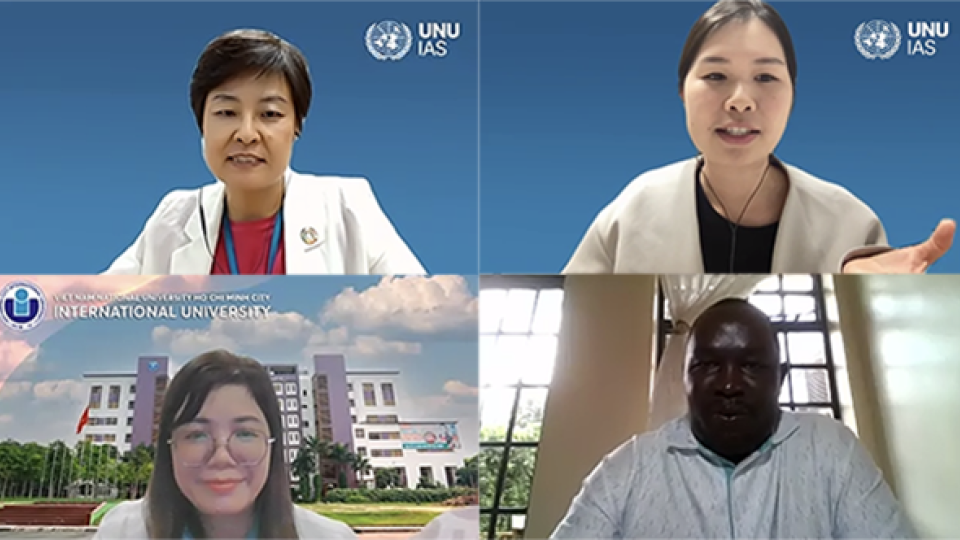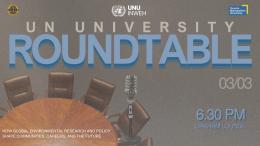On 21 September 2023 UNU-IAS held a workshop as part of the third UNESCO ESD-Net 2030 learning webinar, which promoted innovative practices in education for sustainable development (ESD).
Opening the event, Julia Heiss (Programme Specialist, Section of Education for Sustainable Development, Education Sector, UNESCO) noted the role of the ESD-Net 2030 webinar series in generating new knowledge and peer-to-peer learning, providing diverse examples of how ESD can be taught in different contexts.
The workshop, facilitated by Jonghwi Park (Academic Programme Officer, UNU-IAS) and Sawaros Thanapornsangsuth (Postdoctoral Fellow, UNU-IAS), guided participants through a design process for community-based actions and education focused on sustainable consumption and production (SCP), utilising a problem-based learning pedagogical approach.
The workshop introduced three critical factors of SCP: (i) resource efficiency; (ii) waste management and minimisation; and (iii) consumer behaviour. It drew upon 12 case studies from the Regional Centers of Expertise on ESD (RCEs) that were featured in a recent UNU-IAS publication. RCE representatives Thi Ngoc Tran Diep (RCE Southern Vietnam) and Lawrence Thuo (RCE Greater Nairobi) discussed how they applied problem-based approaches to designing ESD projects for SCP in their communities.
Dr Diep presented a project which sought to educate a local community in Southern Viet Nam on sustainable farming. The project provided training materials and workshops for local authorities and farmers on organic and less-intensive farming practices, and created a working model of an organic rice farm.
Mr Thuo discussed e-waste challenges in Kenya, Nairobi, and the E-Waste Upskilling Initiative, which empowers informal sector workers and youth through education, hybrid training solutions, and infrastructure development. A public awareness campaign provided information on de-pollution and decreasing landfill, the impacts of hazardous e-waste on human health and the environment, and the positive effects of e-waste circularity on environmental conservation.
Participants reflected on how they could develop engaging ESD activities to spark interest and encourage action for SCP in their communities. Ideas included hands-on activities to better understand production processes and the management of waste; field trips to recycling facilities, and role-playing games to gain perspectives from producers, consumers, and waste managers.
Closing the webinar, Mark Manns (Programme Specialist, Section of Education for Sustainable Development, Education Sector, UNESCO) highlighted the diversity of experiences, projects, and programmes that had been shared, and called on participants to work together to support the implementation of ESD.





